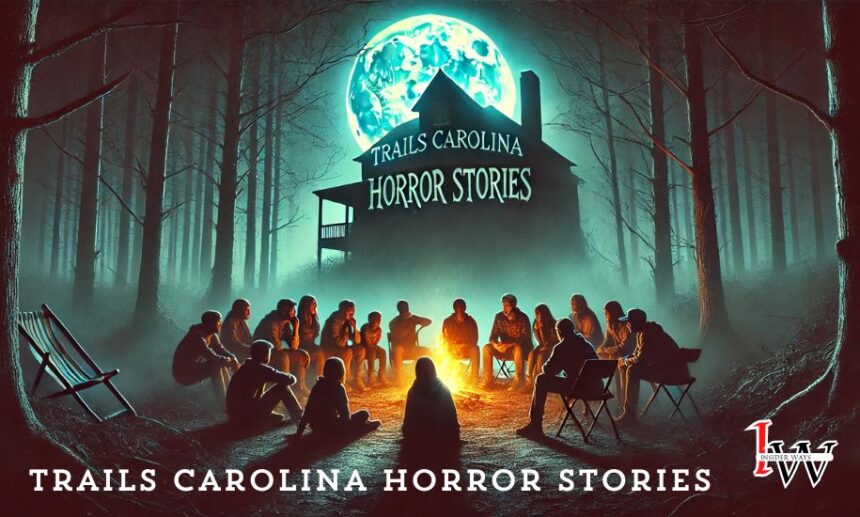Trails Carolina has emerged as a prominent wilderness therapy program, purposed to rehabilitate troubled teens through nature-based interventions. However, the program has been marred by a series of allegations detailing a darker, more disturbing side. These Trails Carolina horror stories have captured public attention, prompting calls for oversight and reform. This article explores the depths of these stories, the response from regulatory bodies, and the implications for the future of wilderness therapy.
Testimonies from Trails Carolina: A Spectrum of Experiences
Trails Carolina is intended to provide a therapeutic environment, leveraging the healing power of nature. While some participants recount transformative experiences, a troubling number share severe allegations of abuse and neglect. These Trails Carolina horror stories include physical mistreatment, emotional trauma, and inadequate care, contributing to a complex narrative about the program’s impact.
Investigating the Trails Carolina Horror Stories
Following numerous complaints, state regulators and independent watchdogs have scrutinized Trails Carolina’s operations. These investigations aim to validate the claims made by former participants and ensure the program meets necessary safety and ethical standards. The findings have been mixed, fueling an ongoing debate about the efficacy and morality of such wilderness therapy programs.
The Legal Landscape: Lawsuits and Trails Carolina
The Trails Carolina horror stories have led to several high-profile lawsuits, accusing the program of negligence and emotional abuse. These legal battles seek justice for the alleged victims and aim to hold Trails Carolina accountable. The outcomes of these cases have had significant ramifications, influencing policy changes and raising awareness about the potential risks of wilderness therapy.
Psychological Impact of the Trails Carolina Experience
Many alumni of Trails Carolina report long-lasting psychological effects stemming from their experiences. Symptoms like anxiety, PTSD, and trust issues are commonly reported, suggesting that the program’s methods may cause significant emotional distress. This aspect of the Trails Carolina horror stories highlights the need for trauma-informed care within wilderness therapy settings.
Calls for Reform Triggered by Trails Carolina Horror Stories
The ongoing controversy has ignited a broader discussion on the need for stringent regulatory measures in wilderness therapy. Advocates for reform call for enhanced transparency, improved safety protocols, and rigorous staff training to prevent future incidents. These reforms are deemed essential to safeguard participants and restore trust in wilderness therapy programs.
Trails Carolina’s Response to Horror Stories
In the face of mounting criticism and legal pressures, Trails Carolina has pledged to reform its practices and strengthen safety measures. The program has committed to enhancing staff training, revising protocols, and engaging more transparently with regulatory bodies to ensure participant safety and well-being.
The Role of Media and Advocacy in Shaping Public Perception
Media coverage and advocacy have played pivotal roles in bringing the Trails Carolina horror stories to light. Investigative journalism and social media campaigns have helped amplify the voices of those affected, fostering a more informed public dialogue about the practices at Trails Carolina and similar programs.
Future Directions in Wilderness Therapy Post-Trails Carolina
The Trails Carolina saga compels a reevaluation of wilderness therapy as a whole. Experts advocate for integrating evidence-based mental health practices and ensuring all programs operate under ethical guidelines that prioritize the health and safety of participants. These changes are critical to the future success and legitimacy of wilderness therapy.
Supporting Survivors of Trails Carolina
Supporting the survivors of Trails Carolina involves providing them with necessary mental health resources and a platform to share their experiences. Establishing survivor networks and advocacy groups can empower former participants, facilitating their healing process and aiding them in navigating the aftermath of their experiences.
FAQs on Trails Carolina Horror Stories
What are Trails Carolina horror stories?
Trails Carolina horror stories refer to accounts of alleged abuse and neglect reported by former participants of the Trails Carolina wilderness therapy program. These accounts include physical, emotional, and psychological abuse.
How has Trails Carolina responded to these horror stories?
Trails Carolina has acknowledged the seriousness of the allegations and has pledged to implement reforms. They are focusing on enhancing safety protocols, staff training, and participant support.
What actions have been taken against Trails Carolina?
Numerous legal actions and state investigations have been undertaken to address the allegations of abuse at Trails Carolina. These have resulted in mixed findings, with some confirming misconduct and others not finding substantial evidence.
What should potential participants consider before joining Trails Carolina?
Potential participants should thoroughly research the program, read both positive and negative experiences, consult mental health professionals, and consider other therapy options. Understanding the full spectrum of testimonials is crucial.
How can former participants of Trails Carolina seek help?
Former participants can seek support from mental health professionals specializing in trauma. Additionally, there are support groups and legal avenues available for those who wish to pursue justice or need help processing their experiences
This comprehensive exploration reflects the complexity and urgency of addressing the issues within wilderness therapy, underscored by the haunting narratives of Trails Carolina.



